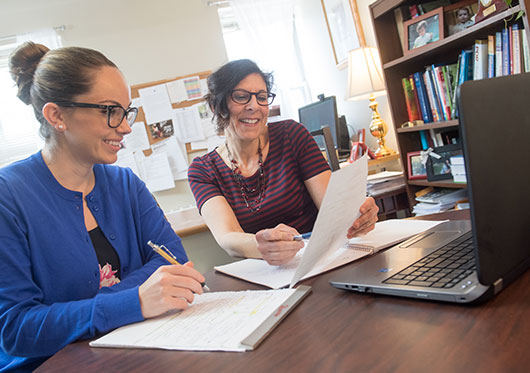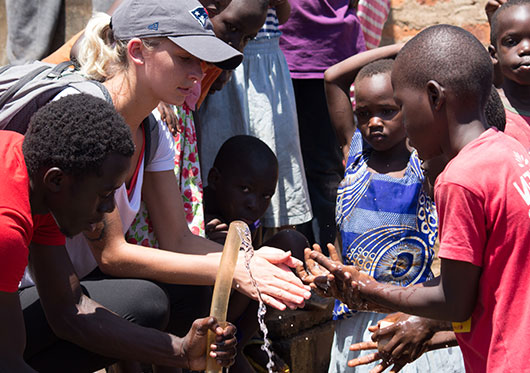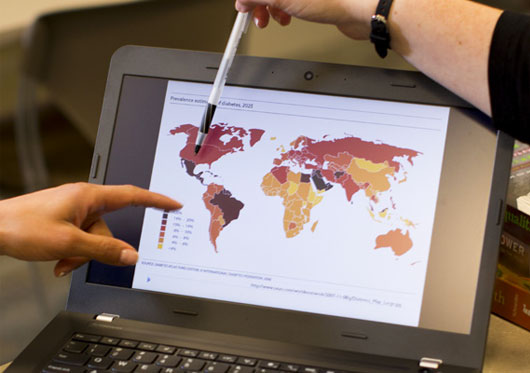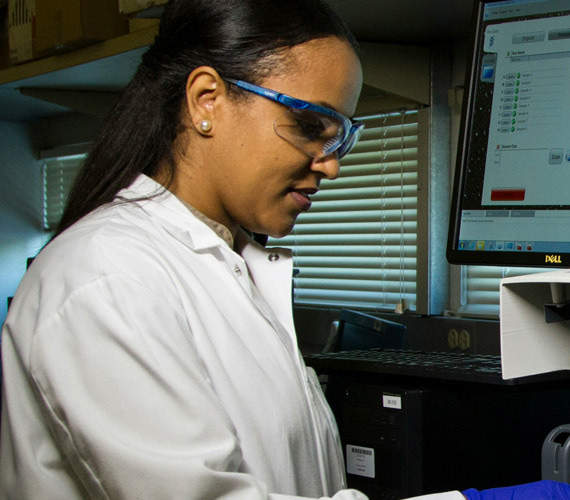Public health professionals play an essential role in ensuring the health and wellness of entire communities. By providing health education to community members, improving health outcomes, advocating for healthcare policy, and/or identifying and monitoring diseases, public health professionals have large and lasting impacts on entire populations.
With recent events like the COVID-19 pandemic shining a spotlight on public health, interest in the field has grown—along with the demand for skilled public health professionals.
For many, the first step breaking into public health or advancing in the field is completing a bachelor’s degree in public health. Here’s an overview of the benefits of earning your degree as well as three key considerations to determine whether or not it’s the right path for you.
Is a Bachelor’s Degree in Public Health Worth it?
If you’re wondering how to get started in the field, or perhaps you have an associate’s degree and are wondering how to advance your career, then you’re likely asking yourself “Will earning a bachelor’s degree in public health be worth the investment?”
According to Dr. Leslie Mandel, associate professor and director of Regis College’s public health program, “It is absolutely worth it. This is probably one of the few degrees where you can have such a large impact on peoples’ health. With public health you’re dealing with the health of communities and populations, so the work you’re doing either behind the scenes or face to face can reach the largest number of people.”
In addition to being a highly impactful and rewarding career, there are many other reasons people are drawn to public health positions, including:
- Job security
- Opportunities for growth
- Versatility
For example, some of the top public health careers include:
- Healthcare Administrator, average salary of $110,680 per year
- Public Health Advisor, average salary of $61,640 per year
- Public Health Administrator, average salary of $65,000 per year
- Public Health Analyst, average salary of $71,087 per year
- Health Educator, average salary of $62,860 per year
- Community Health Coordinator, average salary of $50,688 per year
- Community Health Worker, average salary of $41,246 per year
If you aspire to advance your career and increase your earning potential, completing your bachelor’s degree in public health is a stepping stone toward furthering your education in the field with a graduate certificate or master’s degree in public health (MPH).
With these factors in mind, it’s easy to understand why public health is an appealing career choice. But is earning your bachelor’s degree the right path for you?
How to Decide If a Bachelor’s in Public Health Is Right for You
Here are three key questions you should ask to help you decide whether a bachelor’s degree in public health is worth it.
1. Does it align with your career goals?
To better understand how a degree in public health can help you reach your goals, you should first understand what those goals are. If you are looking for a stable career with opportunities for growth, earning a public health degree could be right for you.
A bachelor’s in public health can open up many career opportunities. For example, if you already have an associate’s degree and are looking for upward mobility, a bachelor’s can help you get promoted. Or, if you aspire to certain advanced job titles, a bachelor’s degree can prepare you to earn an MPH which is often required for more senior level positions.
According to Dr. Richard Pulice, professor for Regis’s public health programs, the field of public health also offers a favorable job outlook for graduates.
“My experience is that most students are able to find that first job in public health fairly quickly after graduating,” Pulice says. “And, if you’re preparing for grad school, the bachelor’s degree gives you a leg up in that preparation.”
2. Does the career path interest you?
It is also important to consider your specific interests and how a public health degree can help you expand your knowledge in those areas.
Fortunately, public health is an interdisciplinary field which appeals to those with various interests and backgrounds. If, for example, you prefer to work at the community or population level rather than direct patient care, public health could be the right fit for you.
In fact, it is not uncommon for students to change from fields like nursing or occupational therapy in favor of public health. Doing so is one way for students to stay involved in healthcare without taking a clinical focus.
Since public health is such a versatile field, there is a wide variety of ways you can apply for a bachelor’s degree in public health. Thinking about the specific type of work you hope to do will also help you choose the right program and allow you to focus your studies in areas that align with your interests.
If you are more interested in health education, healthcare management, or policy, for instance, a bachelor of arts degree may be better suited to your interests. These programs, like Regis College’s BA in Public Health, include more of an emphasis on liberal arts curriculum.
The common theme throughout the various careers in public health is the ability to make a difference in the lives of others. If, above all else, you are in search of a rewarding career which allows you to have a positive impact on your community, a public health degree can help you pursue your passions.
3. Does the program fit your needs?
Once you have evaluated your career goals and interests, it is also important to consider your personal goals and needs. Doing so will help you further narrow your focus and find the right program for you.
Be sure to do your research when exploring potential degree programs by exploring the curriculum. As mentioned above, the program you ultimately decide to enroll in should align with your interests so that it can help you develop the skills you will need to reach your career goals.
At Regis, the public health programs are centered around building real-world, hands-on experience to equip students with the skills they need in the field. Not only do students complete 240 credit hours of field experience while obtaining their degrees, but industry-aligned faculty bring their experience to the classroom each day.
“We have faculty who have a very interesting mix of experience,” explains Mandel. “All of us have either worked in the field directly or are currently working in the field. It’s not just theoretical, we have done it.”
If you plan on working while pursuing your education, find a program that will allow you the flexibility you need to balance work and school. At Regis, students are encouraged to work with their advisors and faculty members to create a schedule that fits their lifestyle.
Ultimately, earning a public health degree will only pay off if you can complete the program, and a good program will offer you the support you need in order to be successful.
Making a Difference in Public Health
With a clear understanding of your goals, interests, and needs, you will be better equipped to decide if pursuing a bachelor’s degree in public health is the right choice for you.
If you’re looking to break into the field, earning a BA in Public Health can help you start an impactful career. Or, if you already have an associate’s degree, enrolling in a degree completion program can allow you to jumpstart your career and present opportunities for growth.







